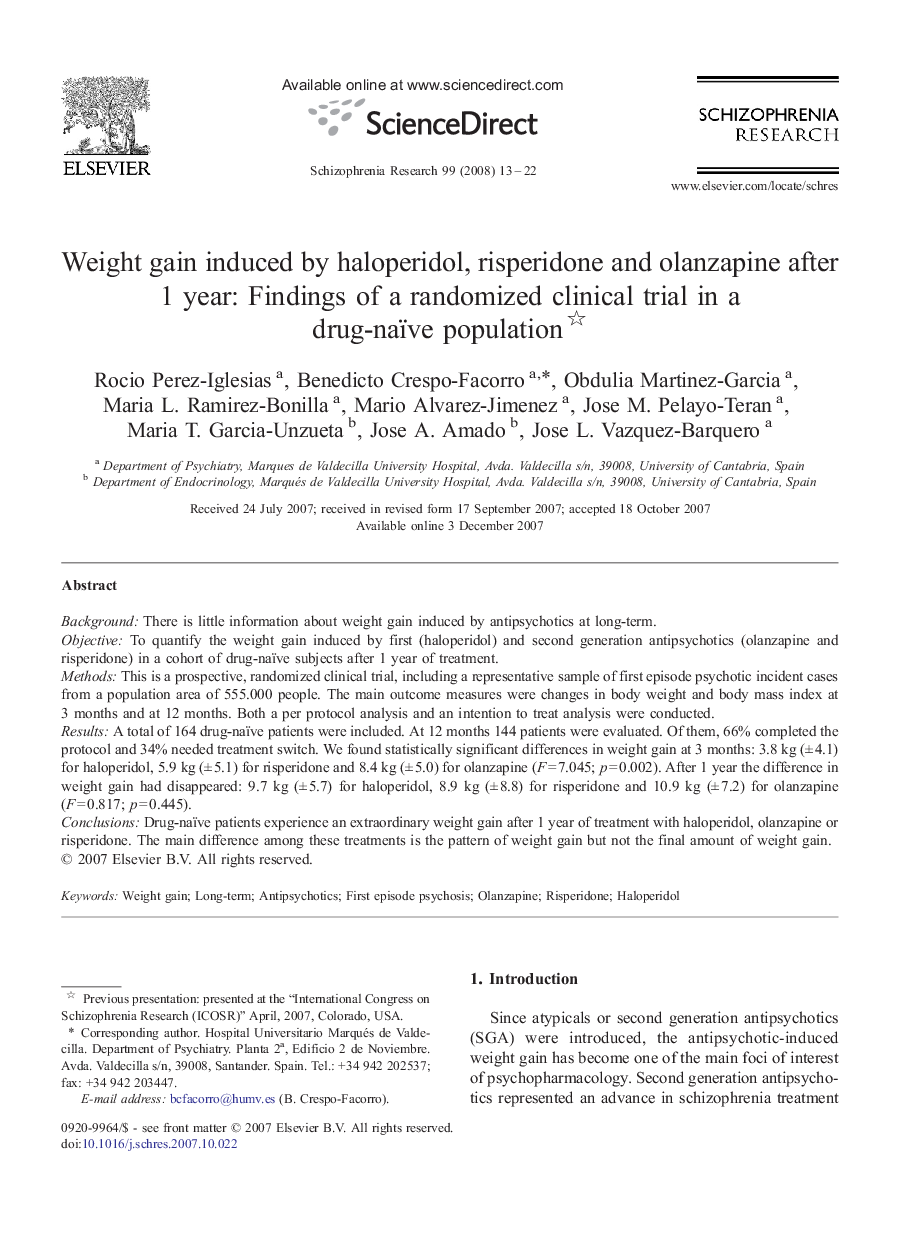| Article ID | Journal | Published Year | Pages | File Type |
|---|---|---|---|---|
| 339967 | Schizophrenia Research | 2008 | 10 Pages |
BackgroundThere is little information about weight gain induced by antipsychotics at long-term.ObjectiveTo quantify the weight gain induced by first (haloperidol) and second generation antipsychotics (olanzapine and risperidone) in a cohort of drug-naïve subjects after 1 year of treatment.MethodsThis is a prospective, randomized clinical trial, including a representative sample of first episode psychotic incident cases from a population area of 555.000 people. The main outcome measures were changes in body weight and body mass index at 3 months and at 12 months. Both a per protocol analysis and an intention to treat analysis were conducted.ResultsA total of 164 drug-naïve patients were included. At 12 months 144 patients were evaluated. Of them, 66% completed the protocol and 34% needed treatment switch. We found statistically significant differences in weight gain at 3 months: 3.8 kg (± 4.1) for haloperidol, 5.9 kg (± 5.1) for risperidone and 8.4 kg (± 5.0) for olanzapine (F = 7.045; p = 0.002). After 1 year the difference in weight gain had disappeared: 9.7 kg (± 5.7) for haloperidol, 8.9 kg (± 8.8) for risperidone and 10.9 kg (± 7.2) for olanzapine (F = 0.817; p = 0.445).ConclusionsDrug-naïve patients experience an extraordinary weight gain after 1 year of treatment with haloperidol, olanzapine or risperidone. The main difference among these treatments is the pattern of weight gain but not the final amount of weight gain.
